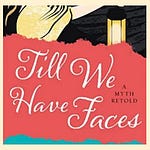An open mic post and free teaching on theme, why it matters and how applying yourself to the study of theme can take some of the sting out of your memoir writing.
Welcome:
Who cares about my story? My book? Me?
If you are a writer of any form, you wouldn’t be human if you didn’t ask these questions. But as memoir writers, these questions infiltrate nearly every moment of our creative process. “Who cares? Who cares? Who cares?” we ask ourselves as we type away our most challenging lived experiences.
What if I told you I could help silence these questions via a better understanding of one simple idea known as theme? Would you be interested?
In my last post, I used the personal story of “a protagonist” (myself) selling her book through perseverance and sheer determination while also struggling mightily with an underlying problem of feeling unworthy. And as I wrote last week, because of that post, we’ve entered the rocky terrain of theme, which I’d like to unpack.
On the Hierarchy of Story chart, which is a template I use when teaching at Blackbird, theme nests close to “idea” and “concept.”
Idea is obvious. It’s your book idea.
Concept is a process of turning that idea into a series of questions that act as the first outline of your book from beginning to end. To go there, you’ll need to take a Foundations Class because it’s too big a lesson for Flight School or this post.
But theme is not too big. Theme is amazingly simple…
SIDEBAR: I’ve encountered writing teacher after writing teacher who scoffs, rolls their eyes, and tosses theme out as if it’s a bag of moldy bread.
So, if you’ve been taught the theme is not necessary or worthy of your time, I’m asking you to open your mind for this post.
In my opinion, theme matters greatly to the memoir writer who often gets mired down by the idea that their book is ONLY about them. Don’t get me wrong. The story is about the writer…for a while; the first and second draft perhaps, but eventually, it must be about the reader too.
What is it then? What is theme?
Theme is the relevance of your story to life. To reality…Theme is love and hate, the folly of youth, the treachery of commerce, the minefield of marriage, the veracity of religion, heaven and hell, past and future, science vs. nature, betrayal, friendship, loyalty, Machiavellian agenda, wealth and poverty, mercy and courage and wisdom and greed and lust and laughter.
Theme is life itself, as manifested in our stories, as seen through our characters, and as experienced through our plots.
~ Larry Brooks, Story Engineering
Story Engineering isn’t the best teaching book out there; in fact, it’s annoying on many levels. But I have to confess, MOST teaching books bug me. Too many seem to hold an underlying agenda on the writer's part, or too much ego, or a general pissy-ness and bossy-know-it-all-itis that makes my head hurt. But, I appreciate Story Engineering for two reasons: 1) straight-talking simplicity and 2) smart lessons.
In the above quote, Brooks’ definition stands as a first lesson. Let’s look closer and go to work by using my story from the last few posts, which is about…
The minefield of marriage
The treachery of commerce
Wealth and poverty
Courage
Wisdom
Now that I have my list, I can start narrowing it down to write one primary statement about my story that is so strong, it will act as a compass for my writing and slay any doubts about relevance.
Robert McKee calls this primary statement a controlling idea:
A CONTROLLING IDEA may be expressed in a single sentence describing how and why life undergoes change from one condition of existence at the beginning to another at the end.
~ Robert McKee, Story
McKee is a theme naysayer. He writes, Theme has become a rather vague term in the writer’s vocabulary. “Poverty," “war,” and “love,” for example, are not themes; they are related to setting and genre. A true theme, he writes, is not a word but a sentence that expresses a story’s irreducible meaning.
His agenda is to blow off theme and point writers directly into making a singular statement, and I’m after that, too. We differ essentially on terminology here. And process. So, let me give it a shot.
POSSIBLE CONTROLLING IDEA: Despite doubt, fear, and seemingly insurmountable obstacles (how things were at the beginning), perseverance, sheer will, and inventiveness in the moment are all it takes to get the job done (how things are at the end).
McKee’s controlling idea isn’t wrong because eventually, you will want to narrow your overall thematics down to a controlling idea…if only to be wickedly clear about what you’re writing…but I don’t think a controlling idea is comprehensive enough. And well, it’s….boring. Or what I’ve written is boring, because it’s rather vague.
I like to take a little from Robert McKee and a little from Larry Brooks, and with both in mind, write a primary statement that includes a balance of the specific and the general.
To help you understand, let me try again: (How things are at the beginning) With a demanding husband hounding her to make money (specific), a needy baby clinging to her side (specific), and a history of crippling doubt (specific and general), an American woman (general) takes her innate skills of perseverance, sheer will, and inventiveness (general) and dives into the cutthroat world of publishing (specific) determined to sell her book, provide for her family and save her marriage (specific). (How things are at the end)
Now I’ve done it. I’ve written a balanced thematic statement that tells the whole story in one sentence. This still isn’t a singular statement of what I want the reader to walk away with but this is: Women struggling with marriage and children can overcome any obstacle through perseverance, sheer will, and inventiveness-in-the-moment.
Boom! I know what I’m writing. I no longer wonder, “Who cares?” And I have a plan (as well as some pretty snappy marketing copy for when I pitch my story to an agent).
Your Turn:
Theme is easy, but I find that working with it well is also a process.
I’ve outlined my method above. Now, see if you can try it on for size:
List your thematics.
Write a “life-was-this-way and then then-became-that-way” statement.
Write your singular statement.
Post in the comments section.
~ Jennifer, 🍎



















Share this post